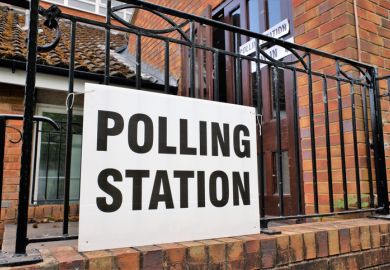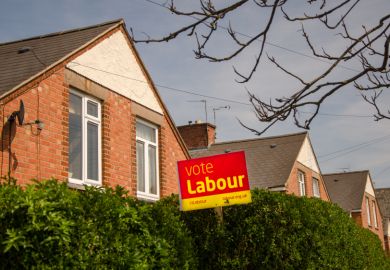Students could end up having more influence on the UK’s coming general election than they otherwise might have done had the poll been held during term time, experts have predicted.
The 4 July date set for the election has led to accusations that the outgoing government was attempting to “silence” students, given that they will be unable to vote as a bloc and potentially influence the result in certain constituencies.
But a summer election means that students are more likely to vote and that their vote is more likely to mean something, said Nick Hillman, director of the Higher Education Policy Institute.
Research has shown that students tend to be registered to vote at their home address in much greater numbers than term-time addresses, and distributing the vote across the country will mean it could have a bearing on a larger number of seats, he explained.
The number of constituencies where students can actually sway the result is very small, Mr Hillman said, and, as students tend to lean to the left, most of the time they are merely topping up already sizeable Labour majorities in major cities, whereas their home constituency could be more marginal.
Chloe Field, outgoing vice-president for higher education at the National Union of Students (NUS), agreed that students being spread out could make a difference, arguing that the nature of the election and Labour’s poll lead made it feel like every seat was “up for grabs”.
But, she said, the “get out the vote” activity usually run by students’ unions and their universities during elections had been lost.
A recent NUS poll indicated that Labour enjoyed a sizeable lead among student voters but 30 per cent remained undecided.
Despite the apparent number of votes to play for, it was unlikely that either party would include much focus on student issues during its campaign, said Mr Hillman.
The Conservatives appeared to have given up on courting the student vote with its policies, such as the reintroduction of national service for young people, much more targeted at shoring up its more mature voter base.
Labour, meanwhile, will be wary that any intervention – for example on tuition fees – will be more likely to cost it votes.
“If you are miles ahead without putting much flesh on the bones, there is risk of driving people away rather than attracting more people towards you,” said Mr Hillman.
Students are also not only influenced by parties’ stances on higher education issues, he added, and the challenge for Labour leader Sir Keir Starmer was to “instil a confidence in them that he will be a party leader that thinks about intergenerational challenges”.
Many remain unconvinced this will be the case, according to Ms Field, who said Labour had appeared reluctant to promise anything for students, which had left some feeling “taken for granted”.
Register to continue
Why register?
- Registration is free and only takes a moment
- Once registered, you can read 3 articles a month
- Sign up for our newsletter
Subscribe
Or subscribe for unlimited access to:
- Unlimited access to news, views, insights & reviews
- Digital editions
- Digital access to THE’s university and college rankings analysis
Already registered or a current subscriber?








